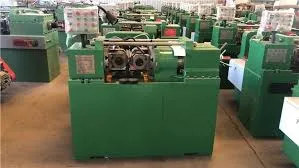
-
 Afrikaans
Afrikaans -
 Albanian
Albanian -
 Amharic
Amharic -
 Arabic
Arabic -
 Armenian
Armenian -
 Azerbaijani
Azerbaijani -
 Basque
Basque -
 Belarusian
Belarusian -
 Bengali
Bengali -
 Bosnian
Bosnian -
 Bulgarian
Bulgarian -
 Catalan
Catalan -
 Cebuano
Cebuano -
 Corsican
Corsican -
 Croatian
Croatian -
 Czech
Czech -
 Danish
Danish -
 Dutch
Dutch -
 English
English -
 Esperanto
Esperanto -
 Estonian
Estonian -
 Finnish
Finnish -
 French
French -
 Frisian
Frisian -
 Galician
Galician -
 Georgian
Georgian -
 German
German -
 Greek
Greek -
 Gujarati
Gujarati -
 Haitian Creole
Haitian Creole -
 hausa
hausa -
 hawaiian
hawaiian -
 Hebrew
Hebrew -
 Hindi
Hindi -
 Miao
Miao -
 Hungarian
Hungarian -
 Icelandic
Icelandic -
 igbo
igbo -
 Indonesian
Indonesian -
 irish
irish -
 Italian
Italian -
 Japanese
Japanese -
 Javanese
Javanese -
 Kannada
Kannada -
 kazakh
kazakh -
 Khmer
Khmer -
 Rwandese
Rwandese -
 Korean
Korean -
 Kurdish
Kurdish -
 Kyrgyz
Kyrgyz -
 Lao
Lao -
 Latin
Latin -
 Latvian
Latvian -
 Lithuanian
Lithuanian -
 Luxembourgish
Luxembourgish -
 Macedonian
Macedonian -
 Malgashi
Malgashi -
 Malay
Malay -
 Malayalam
Malayalam -
 Maltese
Maltese -
 Maori
Maori -
 Marathi
Marathi -
 Mongolian
Mongolian -
 Myanmar
Myanmar -
 Nepali
Nepali -
 Norwegian
Norwegian -
 Norwegian
Norwegian -
 Occitan
Occitan -
 Pashto
Pashto -
 Persian
Persian -
 Polish
Polish -
 Portuguese
Portuguese -
 Punjabi
Punjabi -
 Romanian
Romanian -
 Russian
Russian -
 Samoan
Samoan -
 Scottish Gaelic
Scottish Gaelic -
 Serbian
Serbian -
 Sesotho
Sesotho -
 Shona
Shona -
 Sindhi
Sindhi -
 Sinhala
Sinhala -
 Slovak
Slovak -
 Slovenian
Slovenian -
 Somali
Somali -
 Spanish
Spanish -
 Sundanese
Sundanese -
 Swahili
Swahili -
 Swedish
Swedish -
 Tagalog
Tagalog -
 Tajik
Tajik -
 Tamil
Tamil -
 Tatar
Tatar -
 Telugu
Telugu -
 Thai
Thai -
 Turkish
Turkish -
 Turkmen
Turkmen -
 Ukrainian
Ukrainian -
 Urdu
Urdu -
 Uighur
Uighur -
 Uzbek
Uzbek -
 Vietnamese
Vietnamese -
 Welsh
Welsh -
 Bantu
Bantu -
 Yiddish
Yiddish -
 Yoruba
Yoruba -
 Zulu
Zulu
types of thread rolling machine pricelist
Types of Thread Rolling Machines and Their Pricing
Thread rolling machines are essential tools in various manufacturing processes, particularly in the production of threaded fasteners such as bolts, screws, and nuts. The method of thread rolling is favored over traditional cutting techniques because it not only enhances the strength of the product but also minimizes material wastage. As industries continue to prioritize efficiency and product performance, understanding the different types of thread rolling machines and their pricing becomes crucial for manufacturers.
Types of Thread Rolling Machines
1. Flat Die Thread Rollers Flat die thread rolling machines utilize two flat dies with a thread profile that imprints the thread onto the workpiece. This type is ideal for producing high-precision threads on smaller workpieces. Flat die rollers are commonly used for small-scale production runs and offer flexibility in terms of thread size adjustments. The pricing for these machines typically ranges from $10,000 to $50,000, depending on the manufacturer and features offered.
2. Circular Thread Rollers Circular thread rolling machines employ cylindrical dies that rotate around the workpiece, allowing for continuous thread formation. They are particularly efficient for high-volume production and can handle larger components. These machines are versatile, capable of rolling various types of threads, such as external and internal threads. Prices for circular thread rollers can vary significantly, often falling between $20,000 and $100,000, influenced by their capacity and automation technology.
3. Multi-Roll Thread Rollers Multi-roll thread rolling machines utilize three or more rolls for thread formation, providing a more complex threading process. This type of machine is designed to produce intricate thread profiles and is often used for specialized applications in industries such as automotive or aerospace. The price for multi-roll thread rollers is generally higher, ranging from $30,000 to over $200,000, depending on the level of automation and tooling options.
4. Hydraulic Thread Rollers Hydraulic thread rolling machines harness hydraulic power to exert pressure on the workpieces, allowing for smooth and precise thread formation. These machines are renowned for their ability to handle a wide range of materials and provide uniform thread quality. The pricing for hydraulic thread rollers may start around $15,000 and can escalate to upwards of $150,000, contingent upon the machine's specifications and performance capabilities.
types of thread rolling machine pricelist

5. CNC Thread Rolling Machines CNC (Computer Numerical Control) thread rolling machines integrate computer technology to enhance precision and efficiency. They allow for the automation of complex threading tasks, which minimizes human error and optimizes production rates. CNC machines are typically the most expensive, with prices starting around $50,000 and going beyond $300,000 based on the sophistication of the control systems and features offered.
Factors Influencing Pricing
The prices of thread rolling machines can vary based on several factors
- Machine Type As discussed, different machines cater to specific applications and production volumes, influencing their cost. - Material and Build Quality High-quality materials and robust construction often lead to increased durability and price. - Features and Technology Automation, precision controls, and additional tooling options can significantly impact the price. - Manufacturer Reputation Established brands may command higher prices due to reliability and after-sales service.
Conclusion
Investing in the right thread rolling machine is critical for manufacturers aiming to optimize their production efficiency and product quality. By understanding the various types of machines available and their corresponding price ranges, businesses can make informed decisions that align with their operational needs and budget. Whether opting for a simple flat die roller or an advanced CNC model, the investment in thread rolling technology is essential for sustaining competitive advantage in today’s manufacturing landscape.
